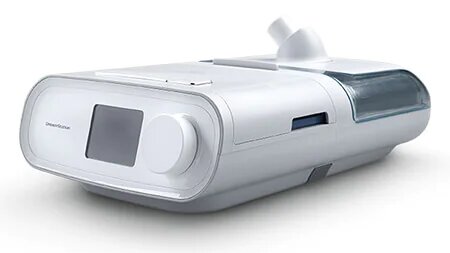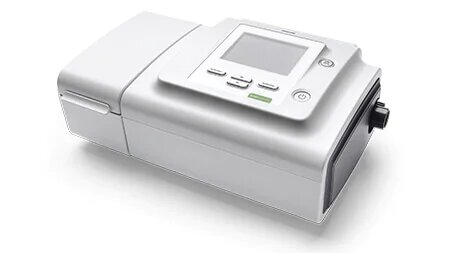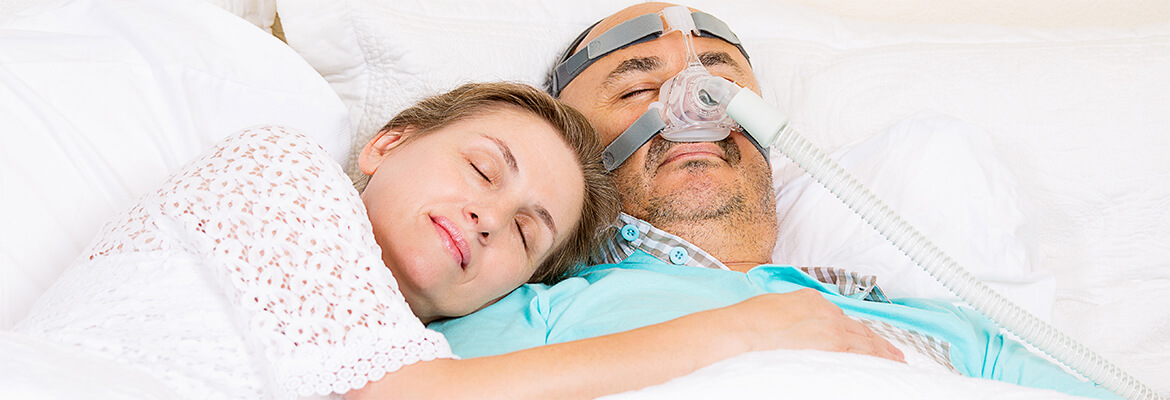Understanding the recall of the Philips CPAP and BiPAP device in La Mesa, California
Richard Evans and Christine Allen of Summit Dental of La Mesa, California, put patients first and stay informed on changes in the field of dentistry. Patients who have obstructive sleep apnea, or OSA, oftentimes are recommended by their physicians to utilize continuous positive airway pressure machines, or “CPAP’s,” to treat their condition. Unfortunately, there has recently been an extensive recall on specific Philips brand CPAP and BiPAP devices. We are here to inform patients in the area of this recent recall while also making a recommendation for a more desirable treatment option: oral appliance therapy.
Which models of CPAP and BiPAP machines are included in this recall?
Below is a breakdown of the Philip brand devices that are included in this recall:
- E30 ventilator
- DreamStation ASV
- DreamStation ST, AVAPS
- SystemOne ASV4
- C-Series ASV
- C-Series S/T and AVAPS
- OmniLab Advanced+
- SystemOne (Q-Series)
- DreamStation
- DreamStation Go
- Dorma 400 and 50
- REMstar SE Auto
What are the alternative ways to address obstructive sleep apnea?
Many patients are advised by their physician to obtain a CPAP or BiPAP device to wear at night when they sleep, to reduce the symptoms of obstructive sleep apnea. However, there is another option that is often not brought to light: oral appliance therapy. Oral appliance therapy uses a specialized dental appliance that is worn at night to achieve the same results and treat obstructive sleep apnea. Instead of using a mask and cumbersome device at night to keep the airways open, patients can wear a comfortable, custom-made appliance that can also keep airways clear for a great night’s sleep. Oral appliance therapy is an easy way to address this condition while eliminating problematic, large, and uncomfortable devices such as the CPAP and BiPAP devices.
Are you interested in learning more about oral appliance therapy for obstructive sleep apnea?
Looking for options to replace your CPAP or BiPAP machine? Are you CPAP intolerant? The dentists at Summit Dental of La Mesa can help. Call our office today at (619) 494-2492 to request an appointment with our team, including Drs. Richard Evans and Christine Allen to discuss your options. The office is located at 8530 La Mesa Boulevard, Suite #204, and accepts new patients.
Richard Evans of Summit Dental of La Mesa, California, understands how important it is to advise patients of new recalls. The Philips CPAP and BiPap device recall affects many of those impacted by obstructive sleep apnea. Click here to read more about this recall and alternative ways to address obstructive sleep apnea with the help of a dentist!


Frequently asked questions
The following CPAP and Bilevel PAP Devices manufactured before 26 April 2021 are affected by the recall:
Continuous Ventilator, Minimum Ventilatory Support, Facility Use:
- E30 (Emergency Use Authorization)
Continuous Ventilator, Non-life Supporting:
- C-Series ASV
- C-Series S/T and AVAPS
- DreamStation ASV
- DreamStation ST, AVAPS
- OmniLab Advanced+
- SystemOne ASV4
Noncontinuous Ventilator:
- DreamStation
- DreamStation Go
- Dorma 400 Dorma 500
- REMstar SE Auto
- SystemOne (Q-Series)
The following Mechanical Ventilators manufactured before 26 April 2021 are affected by the recall:
Continuous Ventilator:
- Aeris
- Garbin Plus
- LifeVent
- Trilogy 100
- Trilogy 200
Continuous Ventilator, Minimum Ventilatory Support, Facility Use:
- A-Series BiPAP Hybrid A30 (not marketed in the US)
- A-Series BiPAP V30 Auto
Continuous Ventilator, Non-life Supporting:
- A-Series BiPAP A30 (not marketed in the US)
- A-Series BiPAP A40 (not marketed in the US)
On April 26, 2021, Philips officially announced that they were taking proactive steps to address issues with a component in the Sleep and Respiratory Care portfolio. At this time, they announced potential health risks associated with the sound abatement foam used in certain CPAP and Bilevel PAP devices and mechanical ventilators.
On June 14, 2021, Philips officially issued a recall of the affected devices after an ongoing analysis. Along with the recall, they announced the potential health risks associated with exposure to the degraded sound abatement foam and possibly to chemical emissions from the foam. Foam degradation may have been caused by unauthorized cleaning methods such as the use of ozone or by exposure to high heat and humidity.
Many Philips products are not affected by the recall either because they do not contain the same sound abatement foam material or because the foam may be in a different place in the device by design.
The following devices are not affected by the recall:
- A-Series Pro and EFL
- Dorma 100, Dorma 200, & REMstar SE
- DreamStation 2
- EV300
- M-Series
- Omnilab (original based on Harmony 2)
- Trilogy 202
- Trilogy Evo
- Trilogy Evo OBM
- All oxygen concentrators, respiratory drug delivery products, airway clearance products
Patients using CPAP or Bilevel PAP devices affected by the recall should immediately discontinue use and consult with a doctor to determine the benefits or detriments of continuing use of the devices.
Patients using life-sustaining mechanical ventilators should NOT discontinue use until they have discussed other options and next steps with a doctor.
The possible health risks associated with the use of the affected devices at this time includes the following:
Potential health risks associated with exposure to degraded sound abatement foam:
- Headache
- Asthma
- Irritation (skin, eye, and respiratory tract)
- Inflammatory response
- Adverse effects to other organs (e.g. kidneys and liver)
- Toxic carcinogenic effects
At this time, Philips has also received reports of headaches, cough, upper airway irritation, chest pressure, and sinus infection.
Potential health risks associated with exposure to chemical emissions from the identified devices:
- Headache/dizziness
- Hypersensitivity
- Irritation (eyes, nose, respiratory tract, skin)
- Nausea/vomiting
- Toxic and carcinogenic effects
At this time, Philips has not received any reports of serious harm or patient impact related to this issue.
Philips has issued a recall of the affected devices and notified users of potential health risks associated with exposure to the affected components.
Users of the affected devices are being notified that Philips will replace the sound abatement foam in the affected devices with a new material that is not affected by the issue. Existing devices will either be replaced with a new or refurbished device or repaired by replacing the sound abatement foam with the new material. All future devices will also use the new unaffected material.
Patients using Bilevel PAP or CPAP devices are advised to discontinue use of the products and discuss with their doctor whether it is advisable to continue use of the product or not.
Patients using life-sustaining mechanical ventilator devices are advised NOT to discontinue use until they have consulted their primary care physician regarding next steps.
Users with an affected device are encouraged to register the device on the recall website: philips.com/SRC-update where they will also receive current information regarding the recall and next steps.
Users are advised to avoid using ozone-related cleaning products and carefully follow their device instructions for appropriate cleaning methods
Users should also review the age of their devices as Bilevel PAP and CPAP devices should be replaced after 5 years.






